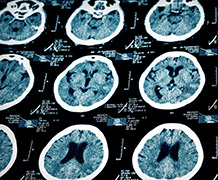Articles

Global Conversation will tackle the challenge of dementia at an event in San Francisco.
Image courtesy of Shutterstock
'Global Conversation' takes key issue of tackling dementia to San Francisco
The crucial issue of how to tackle the challenge of dementia across the global community will be discussed by leading experts in the field, at a special event in San Francisco.
Internationally-acclaimed researchers Professor Linda Clare and Professor Jonathan Mill from the University of Exeter, England, will lead the high-profile event on Monday, 16 November.
The prominent event is the latest in a series of worldwide lectures organised by the University of Exeter, called the Global Conversation, which showcase some of the latest developments in world-leading research.
The prestigious lecture, entitled “Tackling the Challenge of Dementia” will feature Exeter’s world-leading research into Dementia.
Professor Mill, from the University of Exeter Medical School, will explore the biological and genetic issues related to Dementia. Meanwhile Professor Clare, who leads Exeter’s Centre for Research in Ageing and Cognitive Health, will provide an insight into prevention and adaption techniques from the perspective of Clinical Psychology.
Following the discussions, a panel of experts including Professor Paul Coleman of Arizona State University and Stefanie Bonigut of the Alzheimer's Association will answer questions from the audience.
Speaking ahead of the Global Conversation event, Prof Mill said: “Dementia is one of the greatest health challenges facing society, but we know very little about the underlying molecular processes involved in the onset of disease. My group investigates genomic changes in the brain, studying the mechanisms by which genes are inappropriately controlled in conditions like Alzheimer’s disease.
"We are particularly interested in epigenetic processes that control the expression of genes and can be influenced by factors in the environment. Because epigenetic changes are potentially reversible, one significant consequence of our work is that it may provide targets for the development of new therapies."
Monday’s event is the third in a three-part Global Conversation lecture series across North America.
On Monday, November 9, internationally-acclaimed social scientists Professor Debra Myhill from the University of Exeter, England, and Professor Shelley Stagg Peterson from the University of Toronto, provided a unique insight into why government efforts to close the social gap in literacy attainment have been stubbornly resistant to change – even though illiteracy is increasingly rare in the Western World, at an event in Toronto.
Then. On Thursday, November 12, global-leading scientists in the fields of Climate Change and Energy Policy gather at the American Museum of Natural History in New York for the lecture “Avoiding Dangerous Climate Change: What is the best thing to do now?”.
At the event, the University of Exeter’s Professor Peter Cox (Professor of Climate System Dynamics) will highlight the major threats and options which the upcoming United Nations Framework Convention on Climate Change in Paris will consider, while Professor Catherine Mitchell (Professor of Energy Policy) will provide an insight into current European energy policy.
Initiated in March 2015 with two events in Hong Kong, the Global Conversation series explores how the University of Exeter, working in collaboration with its partners across the world, is having an impact on many of the shared global challenges we face. Events in the series focus on common issues and problems, from Mental Health Care to Water Security, and encourage conversation between experts in their fields, guests and a wider public audience.
Launching Global Conversation, Vice-Chancellor and Chief Executive Professor Sir Steve Smith said: “We want to share our thinking and our world-leading research, to open up discussion and debate around these issues. By stimulating conversation between our academics and other leading experts in their fields, we can make a positive contribution to our collective global understanding of issues which affect us all.”
For more information regarding these, and other lectures in the Global Conversation series, please visit the Global Conversation webpage.
Date: 13 November 2015
